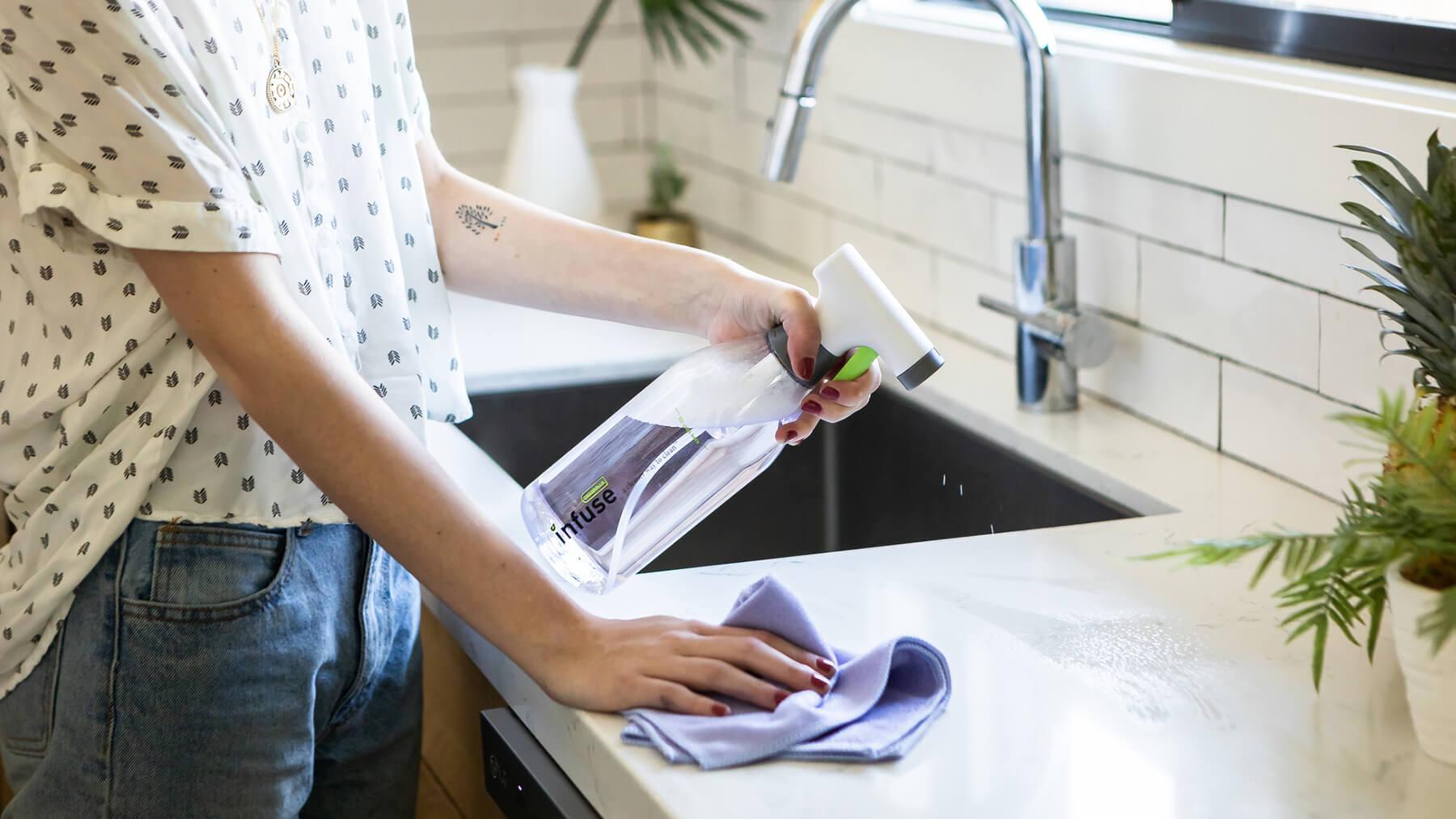Sometimes Cleaning is Best for You and Your Family
Too much of a good thing can be a bad thing. Yes, we’re surrounded by germs and viruses that can threaten the health of our own bodies and those of our kids and pets, but we’re also surrounded by disinfecting agents that can sometimes do more harm than good.
If that sounds scary, let’s take a step back for a chuckle: we once knew a lady who loved to shop at Farmers Markets, but when she brought home strawberries or heirloom tomatoes, she would wash them with bleach in her sink before serving them to her family. Her heart was in the right place, but a trace of bleach is not really what you want in your salad dressing!
Remember a few years ago when doctors came under fire for overprescribing antibiotics for every cough or sniffle? By writing out so many prescriptions, health authorities were concerned that they were simply creating antibiotic-resistant superbugs. Disinfecting is the same way. We’ve got wipes and hand sanitizers in every drawer, every purse, every pocket. And while disinfectants can neutralize dangerous germs on surfaces in the short term, heavy disinfectants when used incorrectly can also cause asthma, cancer, and pollute the environment according to the US Environmental Protection Agency.
So what’s the solution? Clean daily. Disinfect when it’s appropriate.
When you do disinfect, do it properly. Here’s how to disinfect surfaces, according to CDC guidelines.
- Disinfect with a household disinfectant on List N: Disinfectants for use against SARs-CoV-2 the virus that causes COVID-19.
- Follow the instructions on the label to ensure the safe and effective use of the product.
Many products recommend:
- Keeping surface wet for a period of time (see product label)
- Precautions such as wearing gloves and making sure you have good ventilation during use of the product
Always read and follow the directions on the label to ensure safe and effective use.
- Wear skin protection and consider eye protection for potential splash hazards
- Ensure adequate ventilation
- Use no more than the amount recommended on the label
- Use water at room temperature for dilution (unless stated otherwise on the label)
- Avoid mixing chemical products
- Label diluted cleaning solutions
- Store and use chemicals out of the reach of children and pets
You should never eat, drink, breathe, or inject these products into your body or apply directly to your skin as they can cause serious harm. Do not wipe or bathe pets with these products or any other products that are not approved for animal use.
Special considerations should be made for people with asthma and they should not be present when cleaning and disinfecting is happening as this can trigger asthma attacks.
Stay up-to-date with the CDC’s latest guidelines so you will never have to ask yourself how to disinfect surfaces again.
In a Consumer Reports article from 2020, the Co-Director of the Western States Pediatric Environmental Health Specialty Unit goes even farther, saying that cleaning is really more important than disinfecting. When someone is sick or has been exposed to potential viruses and germs, definitely disinfect! But be sure to keep harsh chemicals and wipes away from children and pets, and to air out rooms appropriately, so they won’t even breathe the fumes. But when you clean, be sure to use a non-toxic cleaner like Infuse.
We make non-toxic cleaning products that are safer for your family and for the planet we share… because they remove germs rather than kill them. With Infuse’s non-toxic cleaners, the germs go into the trash can, and your family is safe.
In short:
- Disinfect properly when your household has been exposed to viruses and germs
- Clean every day, using non-toxic products
- Follow CDC guidelines for how to disinfect surfaces properly, and safely
- Choose a non-toxic, environmentally friendly product; the earth will thank you!

